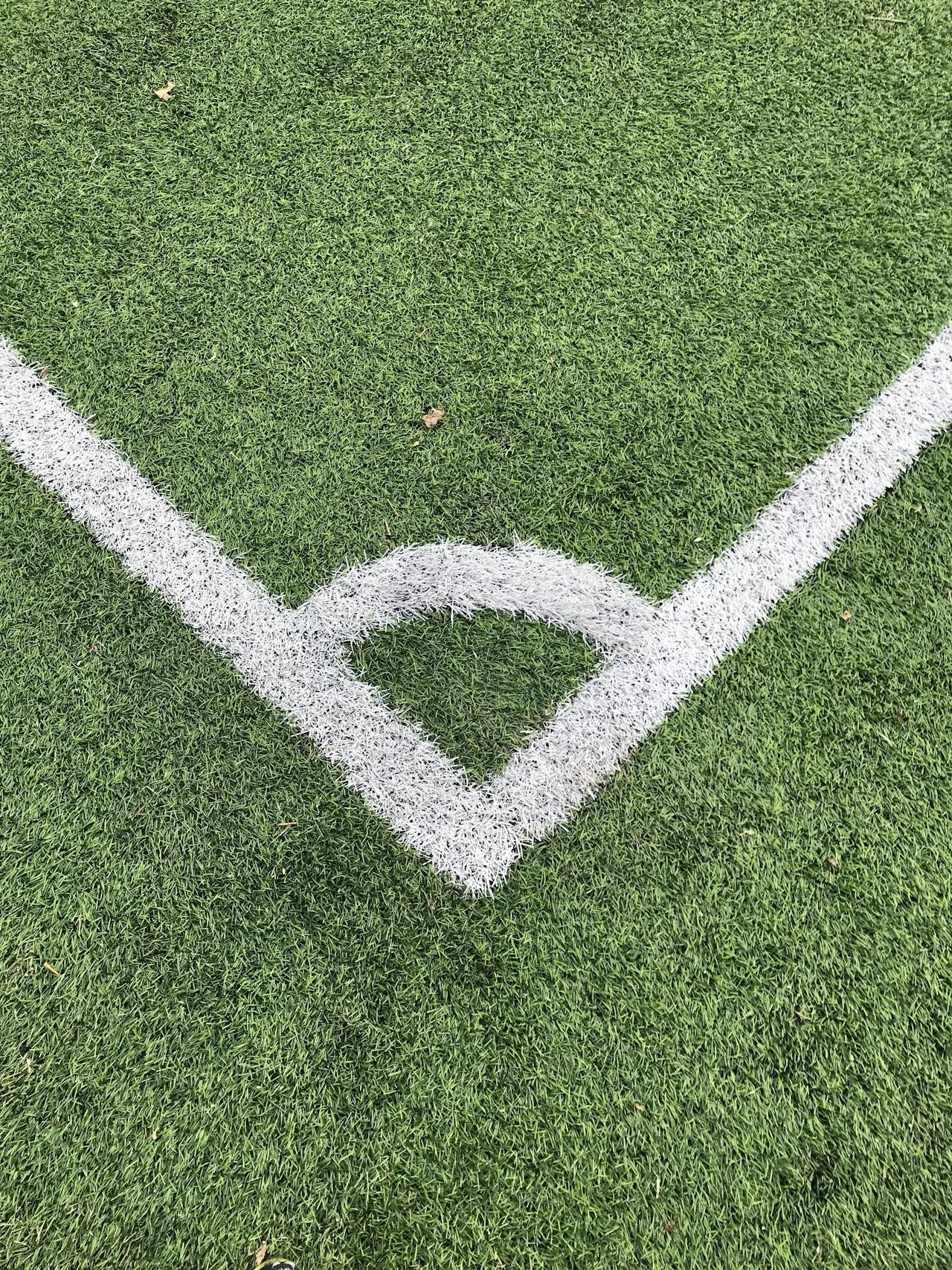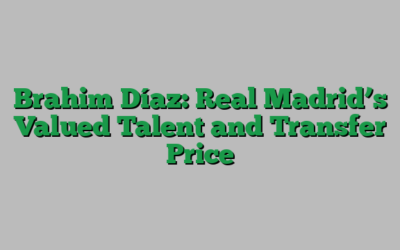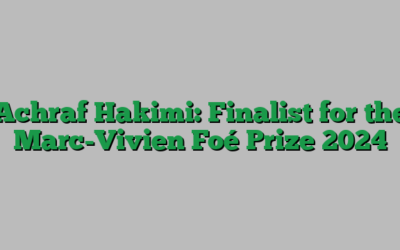One name that has been frequently mentioned in the speculation is Hervé Renard, a French football coach who has had success in Africa. Renard is no stranger to coaching national teams, having previously led Zambia to victory in the 2012 Africa Cup of Nations and Ivory Coast to the same title in 2015. His ability to build strong teams and his tactical acumen have earned him a reputation as one of the best coaches in the continent.
Another potential candidate is Vahid Halilhodzic, a Bosnian coach who has also had experience coaching in Africa. Halilhodzic led Algeria to the knockout stages of the 2014 FIFA World Cup and has a track record of success with national teams. Known for his discipline and ability to motivate players, Halilhodzic could be a strong contender for the role.
On the other hand, there are some who believe that Morocco should consider a local coach to take over the national team. They argue that a local coach would have a better understanding of Moroccan football and its unique challenges. One name that has been mentioned is Jamal Sellami, the current coach of Wydad Casablanca. Sellami has had success at the club level and has a deep knowledge of Moroccan football.
Ultimately, the decision of who will replace Regragui, if indeed he does leave, will be up to the Moroccan Football Federation. They will need to carefully consider the strengths and weaknesses of each potential candidate and choose someone who can lead the national team to success. Whether they choose a foreign coach with international experience or a local coach with a deep understanding of Moroccan football, one thing is for certain: the expectations will be high, and the new coach will have big shoes to fill.
Potential Candidates for the Morocco National Coach Position
When it comes to selecting a new national coach, there are several factors that come into play. The Moroccan Football Federation will likely consider the coach’s experience, tactical acumen, and ability to work with the current crop of players. Here are a few potential candidates who could be considered:
1. Hervé Renard: Renard is a highly experienced coach who has previously worked with the Moroccan national team. He led the team to the 2018 FIFA World Cup and has a deep understanding of Moroccan football. Renard’s tactical approach and ability to motivate players could make him a strong contender for the position.
2. Vahid Halilhodzic: Halilhodzic is another experienced coach who has a successful track record with national teams. He led Algeria to the knockout stages of the 2014 FIFA World Cup and has also managed teams like Japan and Ivory Coast. His ability to build a strong team dynamic and implement effective strategies could make him a valuable asset for Morocco.
3. Carlos Queiroz: Queiroz is a highly respected coach who has worked with top teams and national teams around the world. He has previously managed teams like Iran and Portugal, and his tactical knowledge and attention to detail are widely recognized. Queiroz’s experience in managing diverse squads and his ability to develop young talent could be advantageous for Morocco.
4. Lucien Favre: Favre is a highly regarded coach who has achieved success in various leagues, including the Bundesliga and Ligue 1. He is known for his tactical flexibility and ability to adapt to different playing styles. Favre’s experience in managing top-level clubs and his ability to develop young players could make him an interesting choice for the Morocco national team.
5. Vitor Pereira: Pereira is a Portuguese coach who has had success in various leagues, including the Chinese Super League and the Greek Super League. He is known for his meticulous approach to coaching and his ability to build strong defensive structures. Pereira’s experience in managing diverse squads and his tactical acumen could make him a viable candidate for Morocco.
Ultimately, the decision of selecting the new national coach for Morocco will depend on various factors, including the vision and goals of the Moroccan Football Federation. The chosen candidate will have the responsibility of leading the team to success in upcoming tournaments and ensuring the continued development of Moroccan football.
Hervé Renard’s success as a coach can be attributed to his extensive experience and deep understanding of the game. Throughout his career, Renard has demonstrated a remarkable ability to adapt his tactics to different opponents and situations. He is known for his meticulous planning and attention to detail, which allows him to exploit the weaknesses of his opponents while maximizing the strengths of his own team.
Renard’s coaching philosophy is centered around creating a cohesive and disciplined team that works together towards a common goal. He places great emphasis on building strong relationships with his players and creating a positive team culture. Renard believes that a united and harmonious squad is crucial for success on the field.
One of Renard’s greatest strengths is his ability to motivate his players. He has a unique talent for instilling belief and confidence in his team, even in the face of adversity. Renard is known for his passionate and inspiring team talks, which have the power to ignite a fire within his players and push them to give their all on the field.
Furthermore, Renard’s experience in African football gives him a deep understanding of the unique challenges and dynamics of the continent’s football landscape. He has a keen eye for talent and has successfully nurtured and developed young players, helping them reach their full potential. Renard’s ability to identify and harness the strengths of his players has resulted in numerous success stories throughout his coaching career.
Renard’s track record speaks for itself. In addition to his achievements with the Moroccan national team, he has also led other African nations to success. He famously guided Zambia to victory in the 2012 Africa Cup of Nations, a triumph that was celebrated across the continent. Renard’s ability to achieve success with different teams and in different contexts is a testament to his versatility as a coach.
In conclusion, Hervé Renard’s tactical expertise, ability to motivate players, and extensive experience in African football make him a highly qualified candidate for any coaching position. His track record of success and his ability to adapt to different situations make him a valuable asset to any team or national association that he works with.
2. Vahid Halilhodzic
Vahid Halilhodzic is another experienced coach who has had success with African national teams. He previously led the Algerian national team to the knockout stages of the 2014 World Cup and has also managed the Ivory Coast. Halilhodzic’s disciplined approach and ability to build strong team cohesion could make him a suitable replacement for Regragui.
Halilhodzic’s coaching career spans over three decades, during which he has gained a reputation for his tactical acumen and ability to get the best out of his players. His success with the Algerian national team in the 2014 World Cup was particularly noteworthy, as he guided the team to the round of 16 for the first time in their history. His meticulous planning and emphasis on team organization were key factors in their impressive performance.
One of Halilhodzic’s strengths is his ability to build strong team cohesion. He understands the importance of fostering a positive team culture and creating a harmonious environment where players can thrive. His emphasis on discipline and hard work resonates with his players, and he has a track record of instilling a winning mentality in his teams.
In addition to his success with Algeria, Halilhodzic also had a stint as the manager of the Ivory Coast national team. During his time in charge, he helped the team qualify for the 2010 World Cup and guided them to the quarter-finals of the Africa Cup of Nations. His ability to adapt to different teams and get the best out of the players at his disposal is a testament to his versatility as a coach.
If Halilhodzic were to take over as the new coach of the Moroccan national team, his experience and track record suggest that he would be a strong candidate for the role. His disciplined approach to coaching and ability to build strong team cohesion could be just what the team needs to reach their full potential. With his guidance, Morocco could become a force to be reckoned with in African football and potentially make a deep run in future tournaments.
Overall, Vahid Halilhodzic’s success with African national teams and his ability to build strong team cohesion make him a suitable replacement for Regragui. His experience and track record speak for themselves, and if given the opportunity, he could take the Moroccan national team to new heights.
3. Carlos Queiroz
Carlos Queiroz is a well-known figure in international football, having previously managed the Portuguese national team and several club sides. He has also had success in Asia, leading the Iranian national team to multiple World Cup appearances. Queiroz’s tactical acumen and experience at the highest level could make him an attractive option for Morocco.
Queiroz’s coaching career spans over three decades, during which he has gained a wealth of knowledge and experience. He first rose to prominence as an assistant coach under Sir Alex Ferguson at Manchester United, where he played a crucial role in the club’s success in the late 1990s and early 2000s. His ability to analyze and adapt tactics to exploit opponents’ weaknesses earned him a reputation as a brilliant strategist.
In 2008, Queiroz was appointed as the head coach of the Portuguese national team. Under his guidance, Portugal qualified for the 2010 World Cup in South Africa and reached the knockout stages of the tournament. His emphasis on defensive solidity and organized team play helped Portugal become a formidable force on the international stage.
After leaving Portugal, Queiroz embarked on a new challenge in Asia, taking charge of the Iranian national team. Despite limited resources and political challenges, he led Iran to consecutive World Cup appearances in 2014 and 2018. His ability to create a cohesive unit out of a diverse group of players and his meticulous preparation made Iran a difficult team to break down.
Queiroz’s success with Iran has not gone unnoticed, and his reputation as a top-class coach has only grown stronger. His ability to adapt to different playing styles and his focus on discipline and teamwork make him an ideal candidate for Morocco, a team looking to make a mark on the international stage.
Furthermore, Queiroz’s experience in managing players from different backgrounds and cultures could prove invaluable for Morocco, a country with a diverse squad. His ability to foster a positive team spirit and create a harmonious environment could be the missing piece in Morocco’s quest for success.
In conclusion, Carlos Queiroz’s impressive track record, tactical acumen, and experience at the highest level make him a prime candidate for the Morocco national team. His ability to adapt to different playing styles, his focus on discipline and teamwork, and his experience in managing diverse squads make him an ideal choice to lead Morocco to new heights in international football.
4. Patrice Beaumelle
Patrice Beaumelle is a French coach who is currently serving as the assistant coach of the Ivory Coast national team. He has worked closely with Hervé Renard in the past and has gained valuable experience in African football. Beaumelle’s familiarity with the region and his ability to develop young players could make him a potential candidate for the Morocco national coach position.
Over the years, Beaumelle has established himself as a respected figure in African football. His time as an assistant coach has allowed him to learn from some of the best in the business, including Hervé Renard, who has a remarkable track record in African football. Beaumelle has been instrumental in the success of the Ivory Coast national team, assisting Renard in guiding the team to victory in the 2015 Africa Cup of Nations.
One of Beaumelle’s greatest strengths is his deep understanding of African football and its unique challenges. He has spent a significant amount of time in the region, immersing himself in its football culture and gaining valuable insights into the playing style and mentality of African players. This knowledge has proven to be invaluable in his coaching career, allowing him to adapt his strategies and tactics to get the best out of his players.
Another notable aspect of Beaumelle’s coaching style is his ability to develop young talent. Throughout his career, he has shown a keen eye for spotting promising young players and nurturing them into top-class athletes. His focus on player development has not only benefited the teams he has worked with but has also contributed to the overall growth of African football.
Given his impressive resume and his intimate knowledge of African football, it is no surprise that Beaumelle is considered a potential candidate for the Morocco national coach position. The Moroccan national team has a rich footballing history and is known for its talented players. However, they have struggled to achieve consistent success in recent years and are in need of a coach who can bring stability and guide them to new heights.
Beaumelle’s experience and expertise make him an ideal candidate for the job. His familiarity with the region and its footballing landscape would allow him to seamlessly integrate into the Moroccan setup and understand the unique challenges and opportunities that come with coaching the national team. Furthermore, his track record of developing young players would be a perfect fit for a team that boasts a pool of talented youngsters.
In conclusion, Patrice Beaumelle’s extensive experience in African football, his understanding of the region’s football culture, and his ability to develop young talent make him a strong contender for the Morocco national coach position. If given the opportunity, he has the potential to lead the Moroccan national team to new successes and establish himself as one of the top coaches in African football.
5. Local Moroccan Coaches
It is also worth considering local Moroccan coaches who have been making a name for themselves in domestic and continental competitions. Coaches such as Jamal Sellami, who led Wydad Casablanca to the CAF Champions League title, and Lhoussaine Ammouta, who has had success with the Moroccan U-23 team, could be potential candidates for the national coach position.
In recent years, Moroccan football has witnessed the emergence of talented and successful local coaches. These coaches have not only achieved remarkable results with their respective clubs and national teams, but they have also demonstrated a deep understanding of the Moroccan footballing culture and the unique challenges that come with managing the national team.
Jamal Sellami, for instance, has proven himself as a highly capable coach during his time with Wydad Casablanca. Under his guidance, the club clinched the CAF Champions League title, a remarkable achievement that showcased Sellami’s tactical acumen and ability to motivate his players. Moreover, Sellami’s experience in continental competitions would be invaluable for the national team, as Morocco aims to make a mark on the international stage.
Similarly, Lhoussaine Ammouta has made a name for himself as a successful coach with the Moroccan U-23 team. He has led the team to several notable victories, including a triumph in the African U-23 Cup of Nations. Ammouta’s ability to develop young talent and build cohesive teams could be a significant asset for the national team, especially considering the abundance of promising young players in Moroccan football.
The appointment of a local coach would also bring a sense of unity and familiarity to the national team. These coaches have a deep understanding of the Moroccan footballing landscape, including the strengths and weaknesses of local players, the dynamics of the domestic league, and the expectations of the fans. This knowledge can be crucial in creating a harmonious and cohesive team that can effectively represent Morocco on the global stage.
Furthermore, hiring a local coach would also serve as a source of inspiration for aspiring Moroccan coaches. It would send a powerful message that hard work, dedication, and talent can lead to significant opportunities in the footballing world. This could encourage more young coaches to pursue their dreams and contribute to the development of Moroccan football.
In conclusion, considering local Moroccan coaches for the national coach position would be a wise decision. Coaches like Jamal Sellami and Lhoussaine Ammouta have already proven their worth and have the necessary experience and knowledge to lead the national team. Their appointment would not only bring a sense of unity and familiarity but also inspire a new generation of Moroccan coaches.
When it comes to selecting a new coach for the Moroccan national team, the Football Federation will have several factors to consider. Firstly, they will need to assess the candidates’ track records and their ability to handle the pressure that comes with leading a national team. They will look for coaches who have experience in managing high-profile matches and who have a proven record of success in international competitions.
Additionally, the Federation will take into account the coaching philosophy of each candidate. They will want to ensure that the new coach’s style aligns with the team’s playing style and the goals they have set for themselves. This will involve analyzing the candidates’ tactical approach, their ability to adapt to different opponents, and their strategies for developing young talent.
Furthermore, the Federation will consider the candidate’s ability to foster a positive team environment. They will want a coach who can inspire and motivate the players, creating a strong sense of unity and camaraderie within the team. The new coach will be responsible for building a cohesive unit that can work together effectively on the field.
In addition to these factors, the Federation will also take into account the opinions and feedback of the players themselves. They will seek input from the team’s senior players and leaders to gauge their thoughts on potential candidates. This will help ensure that the new coach is someone who can earn the respect and trust of the players, fostering a healthy and productive working relationship.
Once the Federation has gathered all the necessary information and conducted thorough evaluations, they will make their final decision. The announcement of the new national coach will be eagerly anticipated by fans and the football community alike. Moroccan football enthusiasts will be hopeful that the chosen coach will bring fresh ideas, renewed energy, and continued success to the national team.






0 Comments